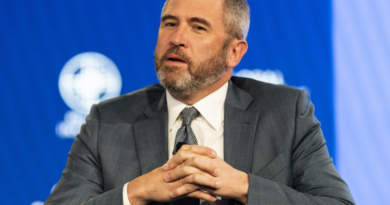Can Europe’s cannabis market avoid the US’ mistakes? Investors chime in
When it comes to Europe’s cannabis market, the biggest piece of news this year is what didn’t happen. Contrary to what a lot of people expected, Germany isn’t on the way to legalizing recreational use of marijuana. Instead, the EU’s most populated country watered down its law reform plans after liaising with regulators.
Is Germany’s decision and the precedent it has set bad news for VCs who invest in cannabis startups in Europe? Not necessarily, and it could even be good news for some. According to Oliver Lamb, co-founder of Óskare Capital, Germany’s “push to slow down the legalization of recreational cannabis is positive for the medical and pharmaceutical market.”
“The hybrid recreational-medical experiment has already been played out in North America, and there were a painful amount of lessons learned that it would be reckless to ignore,” he said.
Lamb, like other investors, is wary of the mistakes they’ve seen being made in the U.S.: “The blurred line between the medical and recreational sectors has undoubtedly been to the detriment of targeted medication development,” he said.
“It is crucial to use lessons from paths that others have laid before you. In New York, we’ve seen a failure to do this, with just a handful of dispensaries up and running alongside lax law enforcement, which led to an overt and booming illicit market,” said Matt Hawkins, founder and managing partner at Entourage Effect Capital.
However, some funds are worried that the total addressable market for legal cannabis on the continent is limited and has been affected by Germany’s decision. “The scaling back by Germany has made us more hesitant to deploy capital in Europe,” Hawkins said. “Germany’s process has indicated the entire continent will struggle to create a commercial adult-use market in the coming years and have a limited TAM.”
Similarly, like other private businesses looking to raise venture capital, cannabis startups aren’t immune to the global repricing that investors are pushing for. “European cannabis companies are still overvalued,” said Emily Paxhia, co-founder and managing partner at Poseidon Investment Management.
For founders of cannabis-related startups hoping to weather the slowdown, the advice isn’t very different from what all entrepreneurs are being told at the moment: survive and advance. That’s Poseidon’s motto, Paxhia said.
For cannabis companies that know they won’t survive, finding a buyer seems to be a viable option, as consolidation is expected in the coming months. But whether we are talking about investments or M&A, we are in a strong buyer’s market, Lamb warned.
Read on to find out where these investors see the next opportunity, how they plan to tackle the market following Germany’s decision, and how to best pitch them.
We spoke with:
Oliver Lamb, co-founder, Óskare Capital
Is cannabis more legally accessible in Europe this year than it was when we conducted our previous survey last year? Have there been any key regulatory changes at play?
On the medical side, cannabinoid therapeutics and non-cannabinoid therapeutics (i.e., therapeutics that modulate the endocannabinoid system but do so without cannabinoids) are notably increasing in availability.
There are many factors at play that explain this shift, amongst them [being] increases in tailwinds and reductions in headwinds. Today we have more, higher quality clinical data demonstrating the efficacy of these medications for various conditions, coupled with an uptick in highly qualified teams that are bringing these medications to market.
As for the tailwinds, difficulties in patient access have long hindered prescriptions of medications that target the endocannabinoid system (the mammalian regulatory system that reacts to cannabinoids and cannabinoid-like molecules, similar to the central nervous system).
However, we are excited to see a number of technologies and platforms linking specialized doctors with patients in need of these medications. One such example is Leva, whose digital clinic is tackling the vastly underserved chronic pain market in the U.K.
Alongside this, there is a growing acceptance within medical communities of the suitability of ECS-modulating medications for certain pathologies. At a conference in Berlin this month, a founder happily relayed that a recent meeting of general practitioners dedicated two hours to talk about medical cannabinoids. This is a clear indicator of the increasing understanding and adoption of these medications by doctors across Europe.
Aside from watered-down plans to legalize recreational use, Germany imported a record amount of marijuana for medical and scientific use in 2022. Is this taking focus away from the fact that imports are slowing?
Although Germany’s decision was undoubtedly unpopular at companies that bet on the legislation going in the opposite direction, this push to slow down the legalization of recreational cannabis is positive for the medical and pharmaceutical market.
The hybrid recreational-medical experiment has already been played out in North America, and there were a painful amount of lessons learned that it would be reckless to ignore. Specifically, legalizing recreational cannabis in tandem with medical use in North America can be seen to have diminished the incentives for researchers to develop targeted therapeutics for specific pathologies, given the flood of cannabis flower being distributed through dispensaries. That happened despite a preference held by the majority of doctors to prescribe targeted and licensed treatment that does not need to be smoked.
The North American approach also blurred the lines between the recreational and medical markets, strengthening the impression that users of such therapeutics were simply prioritizing pleasure while claiming a genuine need.
This misconception is not only counterproductive for patients looking for proven treatments, [but] it also detracts attention from the fact that ECS-modulating medications can provide not only far superior side-effect profiles compared to traditional pharmaceuticals such as opiates, but also treatments for conditions that are currently untreatable.
The Czech Republic might end up legalizing recreational cannabis use before Germany, but it is a smaller market. Is it big enough to move the needle and find out what the EU will tolerate?
Peter Lynch once noted that if you spend 13 minutes a year on economics, you’ve wasted 10 minutes. Politics is arguably the same. Influences on international regulation are vast and varied, and even if you have a good idea of the outcome, the timings are just as complicated to predict.
Therefore, as a rule, we don’t bet on regulation. Instead, we invest in what we know: strong teams, innovative science and untapped market opportunities. We select our investments assuming that the regulatory landscape is fixed as it is today. That way, if nothing changes, we know that they can succeed regardless, and as and when things continue to open up, they can be positioned to benefit further.
A prediction I do feel confident in making is that governments and medical communities will continue to gain understanding of the benefits of these medications.
How has your approach to investing in the cannabis sector changed in the last 12 months? What are your expectations for the next 12 months? Is consolidation in the cards in that period?
With regards to our thesis, not at all. We started by focusing on Europe and continue to do so. Likewise, we launched the fund to target life sciences and deep tech investments in the sector, and this remains unchanged, largely due to the fact that our portfolio is performing very well.
It’s also gratifying to see that a number of U.S. funds are now looking to Europe for the next wave of growth in the sector. This is an asset, as we like to syndicate rounds and having stakeholders across the pond is often helpful when it comes to intercontinental expansion.
Here are our predictions for this year, and those we made for 2022 are here.
We’re happy to say that most of our past predictions have come to fruition, and those for this year are on track to do the same.
What advice are you giving your cannabis-related portfolio companies right now in terms of preserving or extending their runway?



